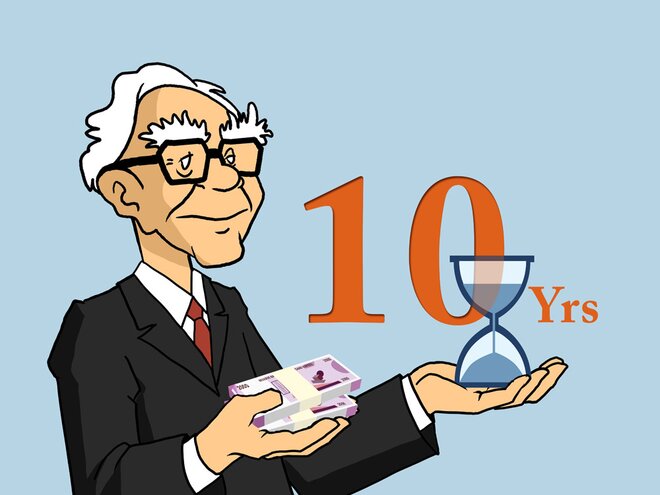
The concept of long-term investing is for all practical purposes, dead. Many investors in this age of by-the-minute business news channels associate long-term investing as holding a stock for a whole one year. Gone are the days when we would still have the shares that our father or grandfather bought. And we are paying the price for it -- dearly!
Busting the Myth
The main criticism against long-term buy-and-hold strategy is that we live in a world that is changing by the day. Nothing -- not even profits, market shares or the stock price remain as they are in the future. So the best course of action, is to buy-and-sell.
Amateur investors alone don't fall for this view. A top ranking Mumbai based fund manager that this writer interviewed a couple of years back had this to say, “How can you say what will happen in 10 years? We may have a war in the Middle East, crude can shoot up, hell we may even be very close to World War III!” And that was the end of discussion on long-term investing.
Buffett has been a long-term proponent of investing for the long-term. “I want a simple business, easy to understand, great economics now, honest and able management, and then I can see about in a general way where they will be 10 years from now. If I can't see where they will be 10 years from now, I don't want to buy it. Basically, I don't want to buy any stock where if they close the NYSE tomorrow for five years, I won't be happy owning it…People buy a stock and they look at the price next morning and they decide to see if they are doing well or not doing well. It is crazy. They are buying a piece of the business. That is what Graham -- the most fundamental part of what he taught me,” (Lecture at the University of Florida Business School, 1998).
The Coffee Can approach
Michael J. Mauboussin, earlier Chief Investment Strategist at Legg Mason Capital Management wrote about the coffee can approach to investing. This was a real-life story about an investor in the US who would buy $5,000 worth of stocks and put their share certificates in a safe deposit box. Sitting in the box, the investor did nothing about them. After his death, it was found that some investments turned into losses and were valued at $2,000, many others were valued at over $100,000 and one investment had gained a value of $800,000!

This real-life story will elicit different reactions among different individuals. Some would say you cannot buy-and-forget; some others would reminisce that is what their fathers did. But the key lesson is not buy-and-forget. Rather that, it is wise not to get carried away with market fluctuations and stick to your investments. This is the essence of Buffett's investing style. “Lethargy bordering on sloth remains the cornerstone of our investment style.” (Annual Letter 1990).
Many critics would say long-term investing doesn't work in India. Let's see with an example. Infosys has been struggling for many years and is really not anyone's favourite stock to own right now -- apart from old-time shareholders! The stock is down 31.5 per cent from its peak and no one knows for certain when things will turn around -- even with Narayana Murthy back. But here's the kicker. If you had bought Rs 1 lakh worth of Infosys 10 years back and did nothing with it, today, in spite of all the negatives, you would be sitting on a mind-boggling sum of ₹ 6 lakh! A similar investment in a much diversified Sensex would have netted you ₹ 5.27 lakh. Heed the advice of Munger, Buffett's partner in investing. “Don't pay attention to 3-5 years”. Investing is a longer term game. The most successful investors in history swear to that.
This is ninth of the 11 investing myths we have been talking about. Please click here to know about the other myths.
